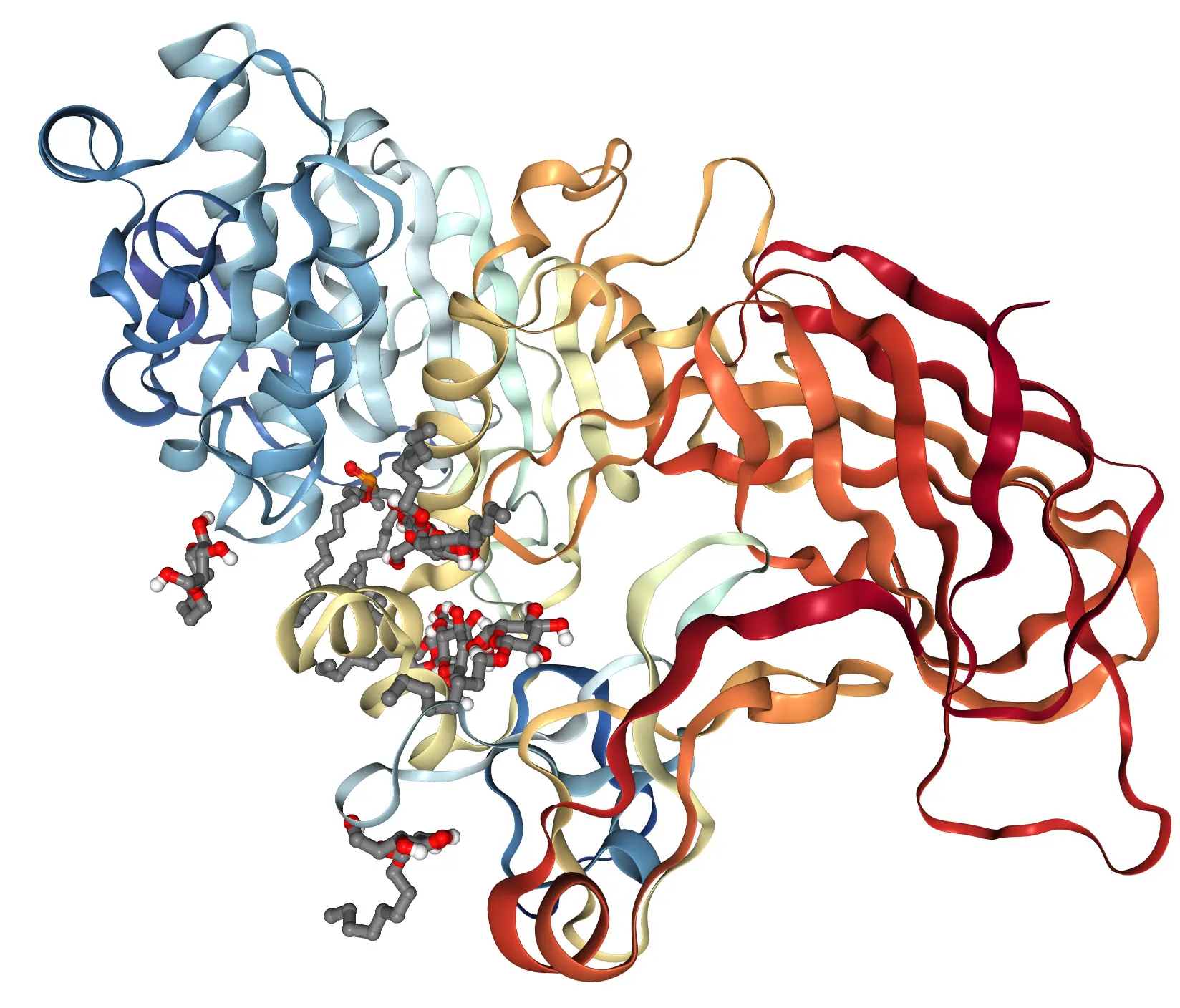PNLIP / PL (Pancreatic Lipase) in Veterinary Diseases: A Key Diagnostic Marker
Aided with the digestion of dietary fat, PNLIP cleaves triglycerides into absorbed fatty acids and glycerol; Pancreatic diseases are associated with dysfunction of PNLIP.
| Catalog No. | Products Name | Detected Species | Products Information |
| GMP-BOV-pancreatic-lipase-Ag | pancreatic lipase | Bovines/Cattle | Details |
| GMP-BOV-pancreatic-lipase-Ab | Anti-Bovine pancreatic lipase mouse monoclonal antibody (mAb) | Bovines/Cattle | Details |
| GMP-CAN-Pancreatic-lipase-Ag | Canine pancreatic lipase | Dog/Canine | Details |
| GMP-CAN-Pancreatic-lipase-Ab | Anti-Canine pancreatic lipase mouse monoclonal antibody (mAb) | Dog/Canine | Details |
| GMP-EQU-pancreatic-lipase-Ag | pancreatic lipase | Equine/Horse | Details |
| GMP-EQU-pancreatic-lipase-Ab | Anti-Equine pancreatic lipase mouse monoclonal antibody (mAb) | Equine/Horse | Details |
| GMP-FEL-Pancreatic-lipase-Ag | feline pancreatic lipase | Cat/Feline | Details |
| GMP-FEL-Pancreatic-lipase-Ab | Anti-feline pancreatic lipase mouse monoclonal antibody (mAb) | Cat/Feline | Details |
Understanding PNLIP / PL: The Significance of Pancreatic Lipase in Pets
PNLIP or Pancreatic Lipase commonly referred to as PL is an enzyme that has the main function of emulsifying fats and lipids so that the body can easily absorb them in the small intestine. In veterinary medicine, PIP is measured uniquely for the diagnoses of pancreatitis in animals yet especially in dogs and cats.

Pancreatitis Detection in Dogs and Cats: The Role of Pancreatic Lipase Tests
Lipase, an enzyme is secreted in the pancreas and the secretion of this enzyme like other digestive enzymes can be affected by pancreatitis which is inflammation of the pancreas. Also, the enzyme lipase and other enzymes are released in the blood in higher levels when there is inflammation, and therefore, evaluation of pancreatic lipase is very essential in diagnosis.
Serum Pancreatic Lipase Immunoreactivity (PLI) test, Spec cPL (canine Pancreatic Lipase) test and Spec fPL (feline Pancreatic Lipase) test that are specific and sensitive biomarkers that help in diagnosing pancreatitis. These tests quantify pancreatic lipase species-specific, thus increasing the chances of proper diagnosis.
The importance lies in the high mortality rate of pancreatitis which is a critical condition that threatens the lives of pets. They can present from minor bowel disturbances to acute pain and general disease. This means that, the correct diagnosis has to be made at the earliest opportunity and as soon as possible for the diagnosis to be accurate, and once the diagnosis has been determined, treatment begins right away, which would involve some supportive care, modification of diet, and occasionally in extreme conditions, admission to hospital.
However, the reader should take cognizance of the fact that pancreatic lipase can be affected by other factors. Thus, veterinarians combine the results obtained from the PLI test with clinical symptoms, history of the animal’s illness, and results of other diagnostic tests in order to determine the general condition of the animal.
In conclusion, pancreatic lipase (PNLIP/PL) and therefore the specific assays like Spec cPL and Spec fPL are central to veterinary diagnostics especially in the detection of pancreatitis. This helps early identification and action that would encourage the protection of pet’s health.
| Animals | Normal Range | Possible Diseases Listed | Specimens/Biofluids | Measurement Method |
|---|---|---|---|---|
| Dog | Spec-cPL < 200 µg/L | Pancreatitis, sometimes observed with other systemic illnesses affecting the pancreas | Blood | Immunoassay (Spec cPL test) |
| Cat | Spec-fPL < 5.3 µg/L | Pancreatitis, sometimes observed with other systemic illnesses affecting the pancreas | Blood | Immunoassay (Spec fPL test) |






